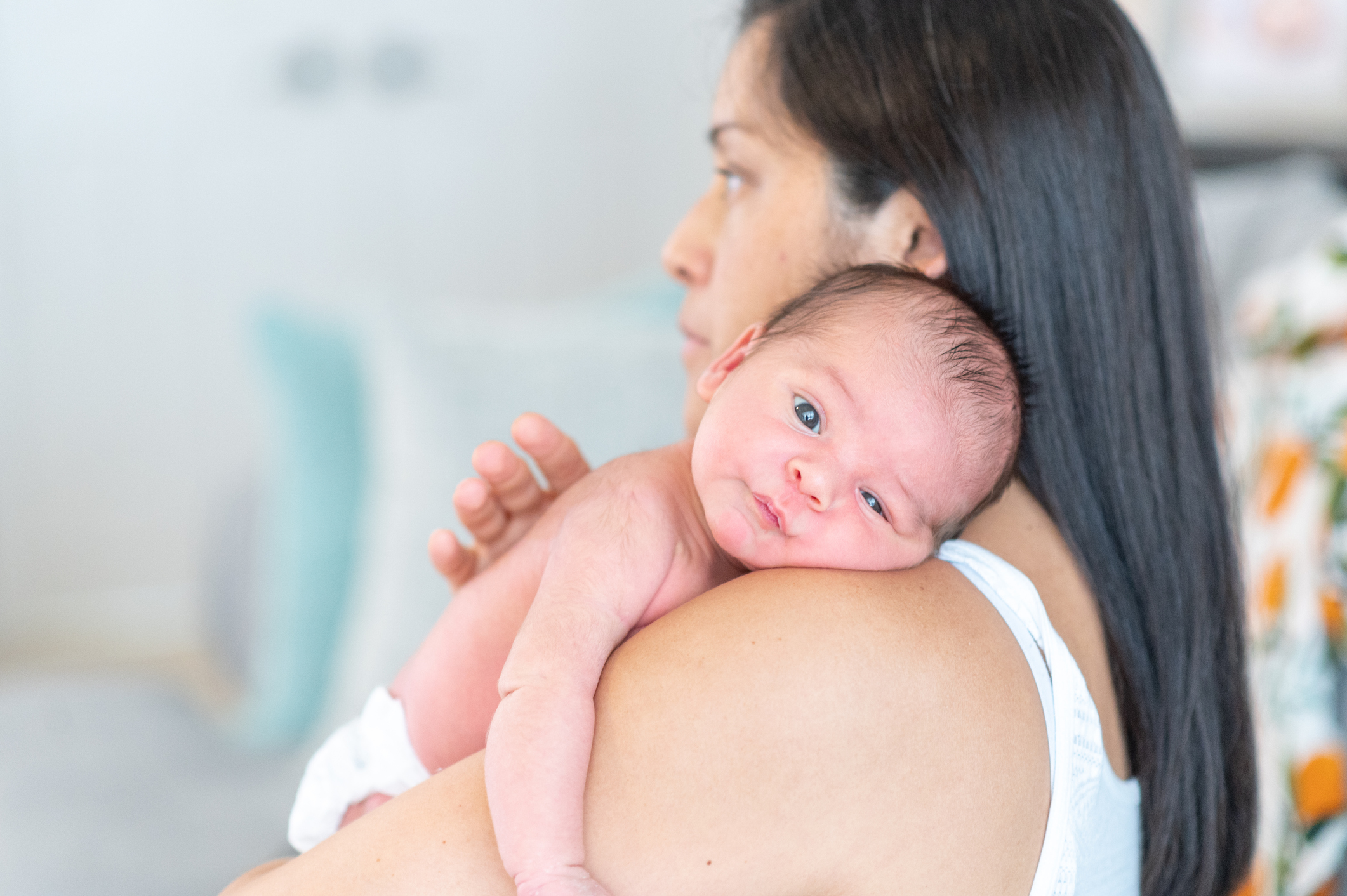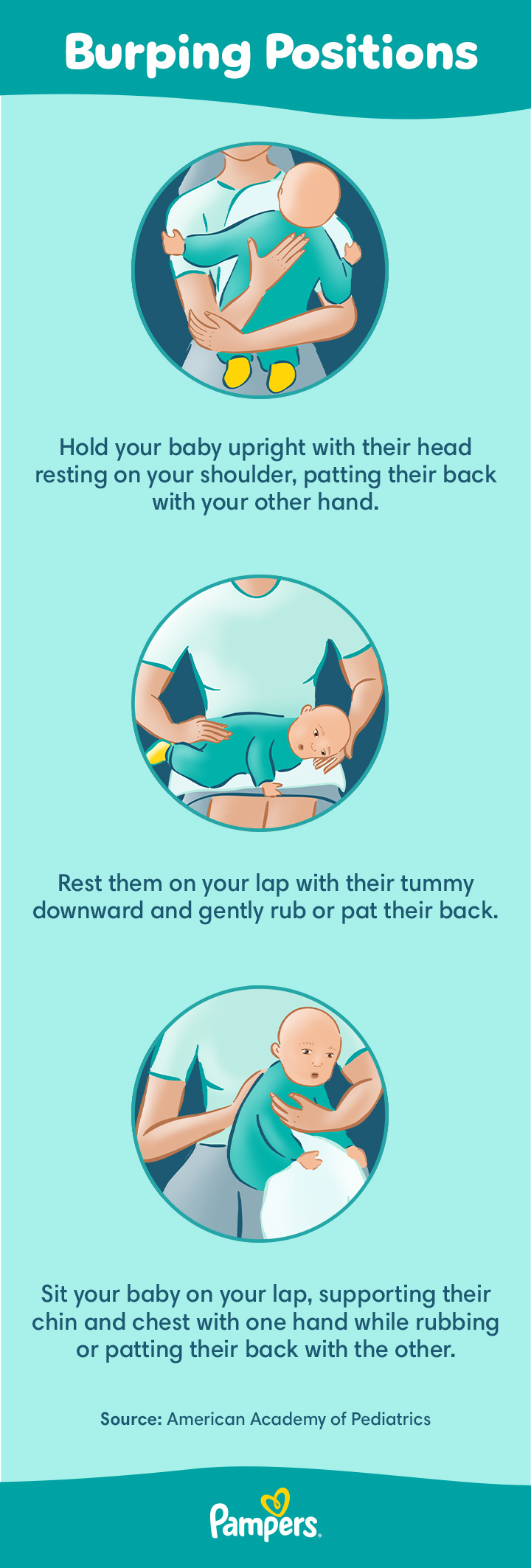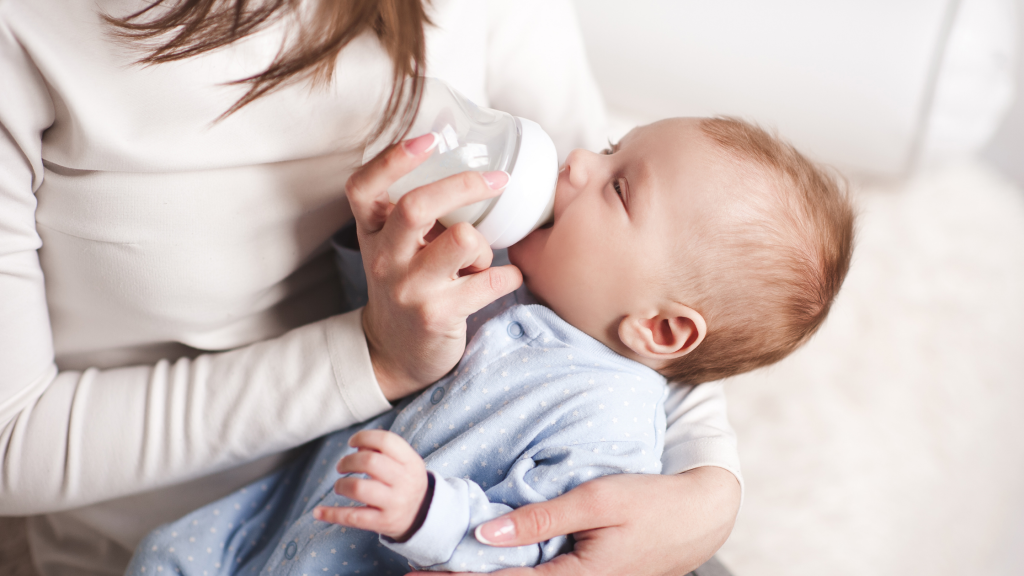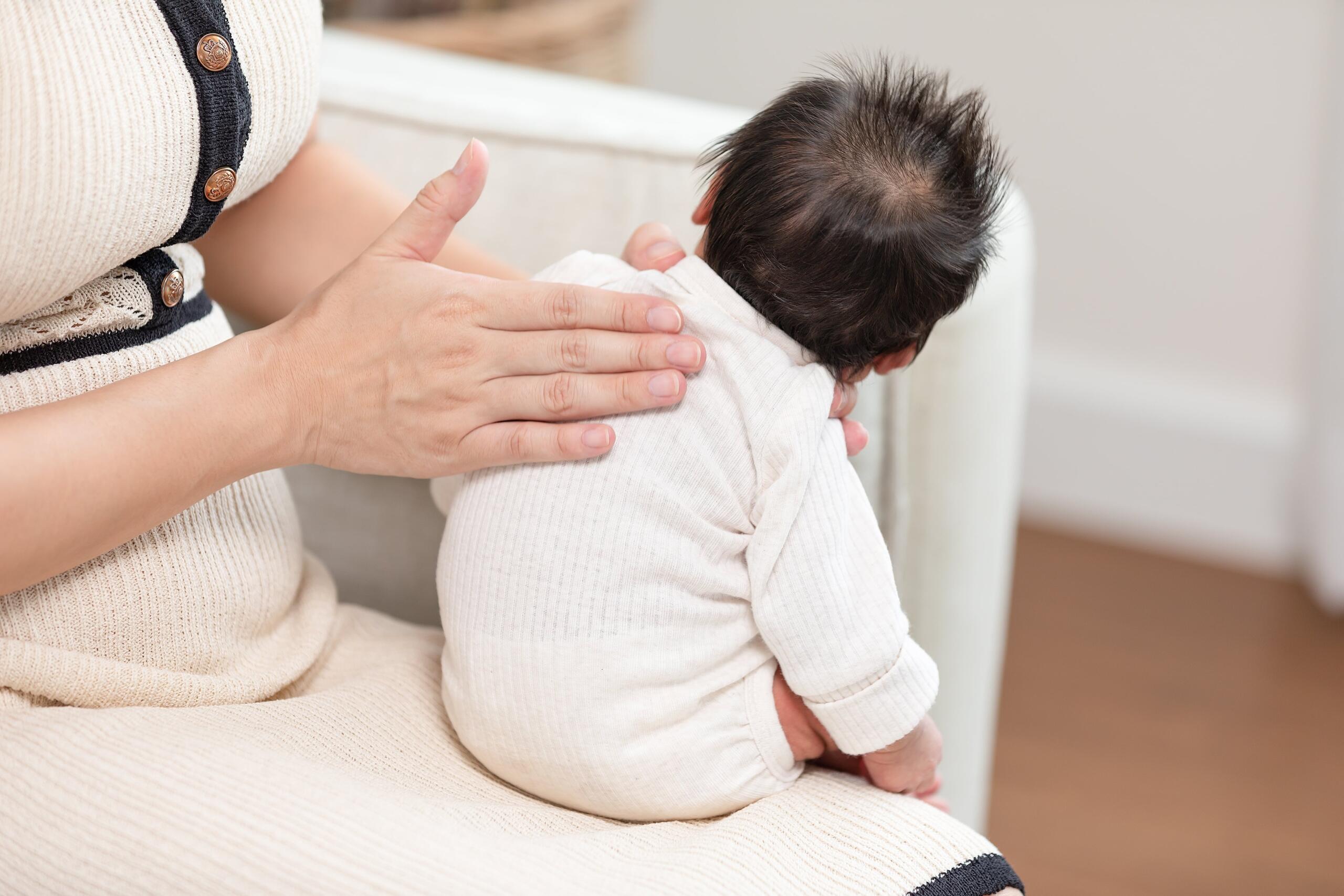Why Does My Baby Get Hiccups After Eating?
Why Does My Baby Get Hiccups After Eating?
A Complete Parent's Guide to Understanding and Managing Infant Hiccups

Understanding baby hiccups after feeding is essential for new parents
Quick Answer
Baby hiccups after eating are completely normal and typically harmless. They occur due to your baby's immature diaphragm, rapid feeding, swallowing air, or an overfull stomach. Most hiccups resolve on their own within minutes and are more common in newborns under 4 months old.
As a new parent, watching your little one experience hiccups after every feeding can be concerning. The rhythmic "hic-hic-hic" sounds might make you wonder if something is wrong with your baby's feeding routine or digestive system. The good news is that baby hiccups after eating are not only normal but extremely common, especially in the first few months of life.
Understanding why your baby gets hiccups after eating, how to prevent them, and when to seek medical attention will help you feel more confident in your parenting journey. This comprehensive guide covers everything you need to know about infant hiccups, from the underlying causes to effective prevention strategies and time-tested remedies.
What Are Baby Hiccups and Why Do They Happen?
Hiccups are involuntary contractions of the diaphragm – the large muscle that helps us breathe. When the diaphragm suddenly contracts, it causes a quick intake of breath that is abruptly stopped by the closing of the vocal cords, creating that distinctive "hic" sound we all recognize.
The Science Behind Baby Hiccups
In babies, hiccups are particularly common because their nervous systems are still developing. The phrenic nerve, which controls the diaphragm, is still maturing, making it more sensitive to stimulation. This explains why babies hiccup more frequently than adults and why the hiccups can seem to come out of nowhere.

The developing digestive system in infants contributes to frequent hiccups
Research shows that babies actually start hiccupping in the womb as early as 6 weeks after conception. These fetal hiccups help strengthen the diaphragm and may play a role in lung development. So when your newborn hiccups frequently, it's simply a continuation of a process that began before birth.
Normal Frequency of Baby Hiccups
Most babies experience hiccups multiple times per day, and this is perfectly normal. Some babies hiccup after every feeding, while others may only hiccup occasionally. The frequency typically decreases as babies grow older and their digestive and nervous systems mature.
Did You Know?
Premature babies tend to hiccup more frequently than full-term babies because their nervous systems are even less mature. This is completely normal and will improve as they develop.
Main Causes of Baby Hiccups After Eating
Understanding the specific reasons why your baby develops hiccups after feeding can help you identify patterns and potentially prevent them. Here are the most common causes:
1. Swallowing Excess Air During Feeding
One of the primary causes of post-feeding hiccups is air swallowing, also known as aerophagia. Babies naturally swallow some air while feeding, but certain factors can increase this:
- Feeding too quickly: When babies feed rapidly, they're more likely to gulp air along with milk
- Improper latch during breastfeeding: A poor latch can cause babies to swallow more air
- Bottle feeding issues: Wrong nipple size, bottle angle, or feeding position can increase air intake
- Crying before feeding: Distressed babies may swallow air before they even begin eating

Proper burping techniques can help prevent hiccups by releasing trapped air
2. Overeating and Stomach Distension
When a baby's stomach becomes too full, it can press against the diaphragm and trigger hiccups. This is particularly common in:
- Babies who feed very enthusiastically
- Bottle-fed babies who may consume more than they need
- Growth spurt periods when babies may overeat
- Babies whose parents are still learning their hunger cues
3. Temperature Changes
Sudden temperature changes in food or environment can stimulate the diaphragm and cause hiccups. This might happen when:
- Formula or breast milk is too cold or too warm
- The room temperature changes dramatically during feeding
- Baby moves from a warm environment to a cooler one after eating
4. Gastroesophageal Reflux (GER)
Some babies experience mild reflux after feeding, which can irritate the diaphragm and cause hiccups. While most infant reflux is normal and resolves on its own, persistent symptoms may warrant medical evaluation.
When to Be Concerned
While hiccups are usually harmless, contact your pediatrician if they're accompanied by excessive spitting up, fussiness, arching of the back, or difficulty feeding, as these could indicate gastroesophageal reflux disease (GERD).
Effective Prevention Strategies
While you can't completely prevent baby hiccups, several strategies can significantly reduce their frequency and duration. The key is to focus on proper feeding technique and creating an optimal feeding environment.
Breastfeeding Prevention Tips
For breastfeeding mothers, proper technique and timing can make a significant difference:

Correct feeding techniques help minimize air swallowing and reduce hiccups
- Ensure proper latch: A good latch reduces air swallowing and makes feeding more efficient
- Feed before baby gets too hungry: Extremely hungry babies tend to feed more aggressively
- Take feeding breaks: Pause mid-feeding to burp your baby and allow them to slow down
- Check your milk flow: If you have a fast letdown, consider expressing a little milk before latching baby
- Try different positions: Upright or side-lying positions may help some babies feed more calmly
Bottle Feeding Prevention Tips
Bottle-fed babies have different considerations for preventing hiccups:
- Choose appropriate nipple flow: Too fast can cause gulping; too slow can cause frustration and air swallowing
- Hold bottle at proper angle: Keep it tilted so the nipple is always full of milk, not air
- Use anti-colic bottles: These are designed to reduce air intake during feeding
- Feed smaller amounts more frequently: This prevents overeating and reduces stomach distension
- Warm formula to body temperature: Avoid feeding cold formula directly from the refrigerator
Environmental and Timing Considerations
Creating the right environment for feeding can also help prevent hiccups:
- Feed in a quiet, calm environment: Reduce distractions that might cause rushed feeding
- Maintain consistent room temperature: Avoid dramatic temperature changes during feeding
- Watch for early hunger cues: Feed before baby becomes overly hungry or upset
- Keep baby upright during and after feeding: This helps prevent reflux and aids digestion
Timing Tip
Try to feed your baby every 2-3 hours during the day rather than waiting for them to become extremely hungry. Overly hungry babies tend to feed more aggressively, increasing the likelihood of hiccups.
Safe and Effective Remedies
When your baby does get hiccups after eating, there are several gentle remedies you can try to help them resolve more quickly. Remember, most hiccups will stop on their own within a few minutes, so patience is often the best remedy.
Immediate Remedies During Hiccups

Quick reference guide for managing newborn hiccups after feeding
1. Burping Techniques
Proper burping can help release trapped air and may stop hiccups:
- Over-the-shoulder method: Hold baby upright against your shoulder and gently pat or rub their back
- Sitting position: Support baby in sitting position on your lap and gently pat their back
- Lying across lap: Place baby face-down across your lap and gently pat their back
2. Feeding Adjustments
Sometimes offering a small amount of breast milk or formula can help stop hiccups by resetting the diaphragm's rhythm. This works particularly well if the hiccups started during feeding.
3. Gentle Motion and Positioning
- Hold baby upright for 10-15 minutes after feeding
- Gently rock or walk with baby
- Try different positions to see what helps your baby
- Gentle back rubbing or patting may provide comfort
Long-term Strategies
For babies who frequently experience hiccups, consider these longer-term approaches:
- Keep a feeding diary: Track when hiccups occur to identify patterns
- Adjust feeding schedule: More frequent, smaller feedings may help
- Evaluate feeding equipment: Consider different bottles, nipples, or nursing positions
- Consult with a lactation consultant: Professional guidance can improve breastfeeding technique
What NOT to Do
Never try adult hiccup remedies on babies, such as scaring them, pulling their tongue, or giving them water. These methods are ineffective and potentially dangerous for infants.
Age-Related Changes in Baby Hiccups
Understanding how hiccups change as your baby grows can help set appropriate expectations and guide your response strategies.
Newborn Period (0-2 months)
During the newborn period, hiccups are most frequent and normal. This is because:
- The nervous system is still very immature
- Feeding skills are still developing
- The digestive system is adapting to regular feeding
- Sleep-wake cycles are irregular, affecting feeding patterns

Hiccups are most common and normal during the newborn period
During this period, expect hiccups to occur frequently, sometimes multiple times per day. They may last anywhere from a few minutes to an hour, though most episodes are brief.
Early Infancy (2-4 months)
As babies enter their second and third months, you may notice:
- Slightly less frequent hiccups
- Improved feeding coordination reducing air swallowing
- Better recognition of hunger and fullness cues
- More predictable feeding schedules
Later Infancy (4+ months)
By four months and beyond, most babies experience: